The Crisis of Democracy: No Short Cuts

Interview by Richard Marshall

'For me hermeneutics provides the most fruitful framework for a critical theory of society. Hermeneutics makes us aware of the massive, taken-for-granted ‘stock of’ background assumptions, attitudes, and dispositions that are shared among members of a political community but that often operate ‘behind their backs’, so to speak, and which are therefore hard to challenge, criticize, or change. In contrast to interactional approaches that are committed to methodological individualism, hermeneutics help us understand how structural phenomena both enable and constrain cultural, social, and political change.'
'Democracy is definitively in trouble everywhere. This was one of the main motivations to write the book. But, things have only gotten worse since I published it. Page and Gilen’s empirical study showing that the US is technically an ‘oligarchy’ (and not a democracy) was alarming enough at the time, but the possibility that the US may no longer be a democracy in a minimal sense of peacefully transferring power based on uncontested elections is an even more worrisome development. The current global crisis of democracy stems from a variety of factors but a common thread is that citizens are losing their political power because too many “shortcuts” have been instituted that allow powerful actors to make political decisions while bypassing the citizenry.'
'Against proposals for taking antidemocratic ‘shortcuts’ I argue that the commitment to democracy is based on the realization that there are no shortcuts to better political outcomes. A political community cannot be better than its members and therefore we cannot get better results ‘faster’ by leaving our fellow citizens behind. The only road to better political outcomes is the long, participatory road that is taken when citizens forge a collective political will by changing one another’s hearts and minds. Following this idea, I defend a participatory conception of deliberative democracy as the most attractive way of interpreting the ideal of self-government. However, I do not claim that the ideal of self-government is identical with my specific conception.'

Cristina Lafont is a philosopher who focuses on normative questions in political philosophy concerning democracy and citizen participation, global governance, human rights, religion and politics. Here she discusses hermeneutics, Apel and Habermas, the crisis of democracy, why shortcuts can't work to save democracy, a participatory interpretation of deliberative democracy, how to avoid begging the question, problems with defending democracy, an analogy between women's suffrage and voter ignorance, why self-government is not equated with political equality, lottocratic conceptions of democracy, ‘deep pluralism’ and ‘proceduralism’, deliberative democracy and Habermas read in a particular way, why political deliberation is practical, inclusion, and the value of deferring to experts.
3:16: What made you become a philosopher?
Cristina Lafont: I grew up under Franco’s dictatorship and came of age during Spain’s transition to democracy. At that time people of my generation were convinced that political change was possible, and that the world could be transformed for the better. Yet, despite my strong political motivations, I also had intellectual scruples. I thought that if one wanted to figure out how to change the world for the better then one needed to understand it first. That led me into philosophy. Of course, both tasks (understanding and changing the world) turned out to be more complicated than my ‘young self’ had anticipated…
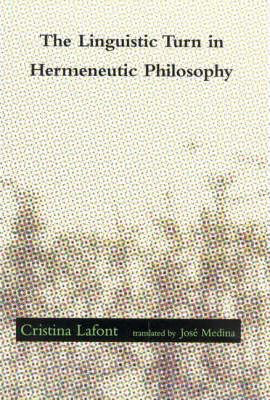
3:16: You’re a leading expert in political philosophy and democracy, as well as critical theory and hermeneutics. How much does your political theory, in particular your account of participatory democracy, owe to your work in hermeneutics, critical theory and what you call the linguistic turn in hermeneutics which you’ve traced as a tradition going back to Hamann, Herder, Humboldt and onwards to Gadamer and Heidegger? Can you sketch for us what you take to be of key interest to you especially in the context of thinking about your democratic theorizing?
CL: For me hermeneutics provides the most fruitful framework for a critical theory of society. Hermeneutics makes us aware of the massive, taken-for-granted ‘stock of’ background assumptions, attitudes, and dispositions that are shared among members of a political community but that often operate ‘behind their backs’, so to speak, and which are therefore hard to challenge, criticize, or change. In contrast to interactional approaches that are committed to methodological individualism, hermeneutics help us understand how structural phenomena both enable and constrain cultural, social, and political change. This has very important consequences for political theory in general, and for democratic theory in particular.
The participatory conception of deliberative democracy that I articulate in my recent book aims to offer a more plausible conception of public political debate than interactional conceptions of deliberative democracy that are based on a face-to-face model of deliberation. Whereas this latter model is often accused of assimilating political debate to something like a philosophy seminar in which participants provide arguments for and against political proposals and reach reasoned conclusions, the model of public debate that I articulate in my book gives a more plausible account of what is involved in actual processes of opinion and will-formation wherein citizens try to change each other’s hearts and minds on contested political issues over time.
According to this more comprehensive and diachronical model, political debates often involve a minority group attempting (over a long period of time) to sway public opinion in its favor by changing the background assumptions, beliefs, attitudes, and values of those who are part of the majority culture. An example that I discuss at length in the book is the legal-political debate on same-sex marriage in the USA as it developed over two decades (from 1993 to 2015). Such diachronic processes take decades to succeed and cannot be plausibly modelled on synchronic, face-to-face exchanges of arguments among individuals at a given time. In contrast to such models, an account of democratic deliberation informed by hermeneutics help us understand that changing hearts and minds requires much more than providing explicit arguments for and against certain political proposals. The whole range of background phenomena (e.g. implicit bias, stereotypes, hermeneutic injustices) need to be identified, challenged, and properly addressed if political mentalities are to be transformed at all. At the same time, a model of democratic deliberation informed by hermeneutics also help us to see what is wrong with deep pluralist conceptions of democracy, which claim that precisely because political disagreements run so deep, they cannot be reasonably overcome. For defenders of this view political disagreement goes “all the way down”, so to speak.
In the book, I focus on examples concerning disagreements about fundamental rights. I draw from the old hermeneutic insight that all disagreement presupposes agreement in order to show that disagreements about specific rights are only possible on the basis of truly massive agreement about other rights. Of course, new agreements over rights often have domino effects and thus generate new disagreements about other rights that would not have been meaningful before. The process of reaching agreement by transforming hearts and minds is certainly open-ended and never finished. But, to acknowledge this is not tantamount to accepting that it is impossible or pointless.
3:16: Apel and Habermas are important to you aren’t they, especially Habermas. Again, how has Habermas in particular been helpful in orientating your thinking towards democracy?
CL: Both Apel and Habermas have influenced my thinking enormously. They were both members of my dissertation committee (Habermas was my advisor) and I learned immensely from them. My hermeneutic interpretation of Heidegger’s Being and Time (which challenges pragmatist interpretations of that work) was mostly influenced by Apel’s work (in fact, although Habermas was my advisor, at that time he endorsed the pragmatist interpretation of Being and Time and only came to change his mind later on). But my thinking about democracy has been definitively shaped by Habermas—this is the reason I dedicated the book to him. In my opinion, the most distinctive feature of Habermas’s conception of deliberative democracy is his focus on the public sphere as a fundamental locus of democratic legitimacy. In the book, I try to identify and spell out some institutional consequences of foregrounding and emphasizing the processes of opinion- and will-formation in which citizens participate, not only for thinking about democracy but also for evaluating possibilities of democratic reform.
Whereas a lot of democratic theorists “give up” on the people (by writing them off as ignorant, apathetic, unable to properly deliberate, etc.) and keep looking for ‘shortcuts’ to bypass the citizenry in order to reach better political outcomes faster, my claim is that there is no democratic alternative to changing citizens’ hearts and minds before imposing coercive political decisions on them. Perhaps a difference between Habermas’s conception of democracy and my own is that I foreground the importance of political will formation (and not just opinion formation) for democratic legitimacy. I argue that the democratic significance of public deliberation derives not only (or even mostly) from its epistemic credentials (i.e. the fact that deliberation may increase the likelihood of reaching reasonable outcomes). Rather, the central democratic aim of public deliberation is to mutually justify the coercive power that citizens exercise over one another by trying to convince each other of the reasonableness of the laws to which they are subject as opposed to simply forcing the losing side into blind compliance. A fundamental aim of public deliberation is showing those who are bound to obey the laws why they too can reasonably endorse them and come to identify them as their own.
This is not something that Habermas would deny. But, in his writings, he has tended to highlight the epistemic dimension over and above the participatory dimension of democratic legitimacy. In that sense, his influence upon deliberative democrats may have led them in the wrong direction (e.g. his particular emphasis may have encourage others to foreground either the microdeliberative perspective of deliberative minipublics or the macrodeliberative perspective of an anonymous deliberative system). My book aims to encourage deliberative democrats to redirect their focus to the question of how we can improve the processes of opinion and will-formation in which citizens actively or passively participate, as this seems to me the only feasible way to overcome the current crisis of democracy.
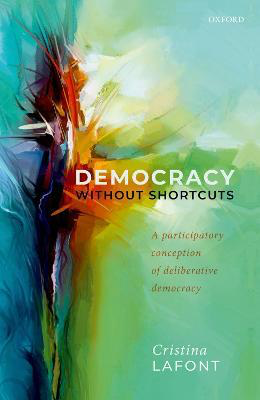
3:16: Democracy seems to be having a bit of a crisis at the moment. Non-democracies outnumber states officially designated democracies (I think?) and even those who officially count as democracies might not be really democracies. Page and Gilens have even used empirical evidence to show that the USA isn’t a democracy but is an oligarchy and in Europe many 'democratic' places, such as 2015 Greece, UK’s Brexit referendum, seem to have a ‘democractic deficit’. To start off then do you think democracy is in trouble – what are people talking about when they talk of a ‘democratic deficit’ and do you agree that there is one?
CL: Democracy is definitively in trouble everywhere. This was one of the main motivations to write the book. But, things have only gotten worse since I published it. Page and Gilen’s empirical study showing that the US is technically an ‘oligarchy’ (and not a democracy) was alarming enough at the time, but the possibility that the US may no longer be a democracy in a minimal sense of peacefully transferring power based on uncontested elections is an even more worrisome development. The current global crisis of democracy stems from a variety of factors but a common thread is that citizens are losing their political power because too many “shortcuts” have been instituted that allow powerful actors to make political decisions while bypassing the citizenry. In democratic countries, citizens still enjoy all their formal political rights (the right to vote, to freedom of expression, association, etc.), but those rights no longer seem to give them any real power to influence the decisions to which they are subject. As a consequence, citizens no longer see themselves as represented by the political system.
The current rise of populism is a symptom of this deep sense of political alienation. Citizens can’t identify with the institutions, laws, and policies to which they are subject and they are unable to endorse them as their own. The current global trend towards authoritarianism is fueled by this general discontent. Given the dangerous situation we are in, it is an insufficient response to simply announce the death of democracy (as so many publications have been doing lately). In this time of crisis is utterly imperative to proactively defend the possibility of genuine democracy and to identify the dynamics and misunderstandings that are corroding it.
3:16: Why do you say that recent proposals for democratic reform aiming to improve democracy would actually exacerbate rather than help ameliorate current democratic deficits? Can you give us some examples of these well intentioned but flawed shortcuts?
CL: This question touches upon the other main motivation for writing the book. I am quite alarmed by some of the proposals that democratic theorists and practitioners advocate to help overcome the problems afflicting democratic societies. While the proposals that I survey are very different and come from theorists across the political spectrum, they all share a fundamental weakness: they undermine the inclusion of the entire citizenry in political decision-making. This is no small oversight, as this is the very ideal of democracy . Instead of resisting democratic deconsolidation, these proposals all succumb to the ‘temptation’ of trying to find a ‘shortcut’—an ‘easy’ way to reach better political outcomes faster without solving the underlying problems that they themselves identify. The problem with these ‘shortcuts’ is that they are squarely anti-democratic and thereby have the potential to increase rather than decrease democratic deficits.
I discuss three types of ‘shortcuts’ in the book to show what is wrong with them in general (i.e., independently of the specific features of the various proposals made by different authors). The first “shortcut” I discuss is proposed by defenders of ‘deep pluralist’ conceptions of democracy (e.g. Waldron, Bellamy, Urbinati, Mouffe). Deep pluralism comes in different varieties, but they all share the view that political disagreements among citizens run so deep that they cannot be reasonably overcome. Given this insurmountable problem they propose that we take what I call the “procedural shortcut”. Since citizens cannot overcome their substantive disagreements, they should all agree to accept the outcomes of democratic procedures—such as majority rule—whatever these outcomes may be. The rationale for accepting this shortcut is that such procedures treat all citizens as equals in virtue of the fact that all citizens are given equal opportunities to influence the outcome. Yet, the problem with pure majoritarianism is that it requires those in the minority to blindly defer to the decisions of the majority even if, by their own lights, these decisions violate their own fundamental rights or those of others. Thus, this conception fails to explain how persistent minorities can come to identify with and endorse the decisions to which they are subject as their own, as the democratic ideal requires. Like populism, deep pluralism defends the rule of the majority and, in so doing, it fails to live up to the democratic ideal of rule by the people.
The second ‘shortcut’ that I discuss in the book is defended by epistocratic conceptions of democracy, which lie on the opposite side of the political spectrum. Epistocrats are deeply concerned with the political ignorance of citizens. To get around such ignorance, they propose what I call the “expertocratic shortcut”: ordinary citizens should blindly defer to the decisions of experts so that better political outcomes can be reached. These conceptions endorse rule by the (expert) minority and, in so doing, fail to live up to the democratic ideal of rule by the people. However, this is not the only problem with their proposed “solution” to the problem of citizens’ ignorance. Epistocrats are also extraordinarily naïve in assuming that a political community can afford to leave the citizenry ignorant (i.e., in the xenophobic, racist, etc. state that they claim it is in) and yet somehow achieve better political results. Unfortunately, a political community cannot be any better than its own members. It is one thing to get political elites to pass legislation and quite another to get the citizenry to do their part so that the legislative goals can be achieved—particularly when ‘doing their part’ involves acting against their own opinions and will. As the global pandemic vividly illustrates, it is extraordinarily naïve to assume that a community can protect public health simply through the stroke of the experts’ pen yet without the citizenry agreeing to do their part (e.g. getting vaccinated, wearing masks, etc.). The better political outcomes that epistocrats dream of will never be achieved until the citizenry endorses them as their own and is willing to do its part so that the results in question materialize.
The last “shortcut” that I discuss is proposed by defenders of lottocratic conceptions of democracy. They argue that political inclusion and equality would be better realized if democracies were to use sortition procedures—such as lotteries or random selection among ordinary citizens—instead of electing representatives from political elites. They pin their democratic hopes on the generalized use of citizens’ assemblies, citizens’ juries, Deliberative Polls, and so on. This is the “lottocratic shortcut”. Given the poor quality of information and debate in the public sphere, the lottocratic idea is that we can solve the problem of an unresponsive political system by properly informing a few randomly selected citizens and then allowing them to make considered political decisions on our behalf. The problem with letting randomly selected panels do the deliberating and deciding for the rest of the citizenry is that the citizenry, in turn, is expected to blindly defer to the (majoritarian) recommendations of a group of random others, even if citizens have no way of knowing whether these decisions align with their own interests, values, and policy objectives such that they can come to accept them as reasonable. Those who have not participated, which is the overwhelming majority of the population, have not had access to the information and the deliberation that took place within the assemblies and therefore have no particular reason to assume that what the majority of the random sample favors coincides with what they themselves would have come to endorse. Lottocrats cannot explain how the citizenry can come to identify with and endorse the decisions of the randomly selected group such that they can see themselves as co-legislators. Here again, a defense of the rule of the randomly selected few fails to live up to the democratic ideal of rule by the people. One cannot solve the problem of political alienation and lack of democratic control by ceding such control to a few randomly selected citizens. This is not democratic, and it won’t work.
3:16: So you defend an alternative, non-short-cut approach – a participatory interpretation of deliberative democracy – so how do you understand this democratic ideal of self-government – and what do you mean by ecumenical in this context?
CL: Yes, against proposals for taking antidemocratic ‘shortcuts’ I argue that the commitment to democracy is based on the realization that there are no shortcuts to better political outcomes. A political community cannot be better than its members and therefore we cannot get better results ‘faster’ by leaving our fellow citizens behind. The only road to better political outcomes is the long, participatory road that is taken when citizens forge a collective political will by changing one another’s hearts and minds. Following this idea, I defend a participatory conception of deliberative democracy as the most attractive way of interpreting the ideal of self-government. However, I do not claim that the ideal of self-government is identical with my specific conception. There can be many possible conceptions of the same ideal. In my view, democratic self-government is an ideal of equal inclusion in political decision-making. This is often expressed as the idea that all those subject to the law should be able to see themselves as its authors. This is the distinctive normative core of the democratic ideal. However, the institutional realization of this ideal can take many different forms, and so can its normative justification.
By embedding this normative ideal in the context of other important normative ideals (justice, freedom, equality, non-domination, etc.) we can arrive at very different ways of justifying why democracy matters. Of course, different normative justifications of democracy are also likely to generate different views about the optimal institutional realization of the democratic ideal (what sets of institutions are needed, how they ought to operate, etc.). When I claim that the conception of democracy that I articulate and defend in the second part of the book is based on an “ecumenical” understanding of the democratic ideal of self-government, I mean that this conception leaves the possibility of different normative justifications of democracy open. Of course, not all justifications may endorse it, but various (even mutually incompatible) justifications could possibly be offered in its support. Thus, the participatory conception of deliberative democracy that I defend may be attractive to readers with different views about justice, equality, freedom, etc. I use the term ‘ecumenical’ to convey this idea. But I also use it in the context of claiming that my criticism of the conceptions of democracy that I analyze in the first part of the book is based on an ecumenical understanding of the democratic ideal of self-government. By this I mean that readers do not have to endorse the specific participatory conception of deliberative democracy that I articulate in the second part of the book in order to find my criticisms of these alternative conceptions compelling.
My critique does not simply aim to show that these conceptions fail to live up to the ideal of democracy when it is understood in line with the conception of participatory deliberative democracy that I find most attractive. My claim is much stronger. I aim to show that these conceptions fail to live up to the ideal of democracy under any plausible understanding of that ideal . In other words, there is something ideological in their claim that they are offering a conception of democracy.
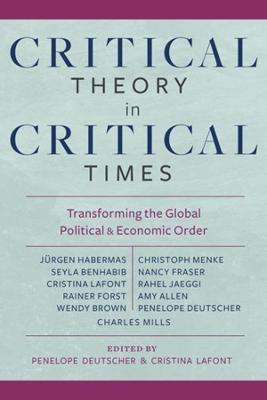
3:16: Are you saying that all other conceptions of democracy fail to live up to the self-government ideal? Isn’t that a dangerous position to take – you’re narrowing down the democratic ideal in such a way that you’re excluding many positions that consider themselves to be democratic. We’re inevitably going to think democracy is in trouble if we can rule out candidates for democracy by stipulation aren’t we?
CL: No, I am not saying that all conceptions of democracy that differ from a participatory conception of deliberative democracy fail to live up to the democratic ideal. You are right that if I had tried to show that alternative conceptions of democracy are not democratic because they fail to meet the standards of my favorite conception of democracy then I would simply be begging the question. Discussions about the best way of thinking about democracy should be driven by substantive concerns and not by stipulation. However, this is no easy task, given the deep disagreements among defenders of different conceptions of democracy. To avoid begging the question, one needs to identify some criterion or at least some minimal condition that defenders of different conceptions of democracy can all agree upon, despite their different opinions about other substantive aspects of democracy. This is what I offer in the book. I identify an utterly minimal, necessary condition for self-government that I claim any conception of democracy must accept to qualify as such (namely, that it does not require blind deference on the part of the citizenry).
I offer the criterion of ‘blind deference’ as a contrast concept to democratic self-government. Citizens participate in a democratic project of self-government if the political institutions they are subject to do not expect or require them to blindly defer to the political decisions of agents over whom they have no possibility of democratic control. Deference is (politically) blind if one has no reason to expect that the political decisions endorsed by the agent to whom one is deferring coincide with those that one would endorse upon reflection, based on one’s interests, values, and policy objectives. For all one knows, the agent’s decisions could go either way. Meeting this minimal requirement is not enough to qualify a political system as democratic, but not meeting it is enough to disqualify it from being democratic.
I claim that the participatory conception of deliberative democracy that I articulate in the book meets this necessary condition. However, since this is only a necessary condition, there can be many other conceptions of democracy (which I do not discuss in the book) that also meet this condition. But I also claim that the three types of conceptions of democracy that I analyze in the first part of the book (deep pluralist, epistocratic, and lottocratic conceptions) do not meet the criterion of avoiding blind deference and thus fail to live up to the democratic ideal of self-government under the most minimal understanding of that ideal. Of course, these are contentious claims that may turn out to be false. But I think that the book at least helps advance substantive debates on democracy by offering a minimum criterion whose validity can be scrutinized and determined independently of which conception of democracy one favors and thus without simply begging the question.
3:16: Why don’t you think it’s helpful – especially now – to mount a defence of democracy and show its superiority to non-democratic alternatives? Aren’t you just preaching to the converted? Or are you doing a sort of Adorno ‘at the time of its fall’ solidarity work as democracy faces dire trouble?
CL: I am somewhat skeptical about how helpful a defense of the superiority of democracy over authoritarianism would be. If one doesn’t think that the historical record has settled the case in favor of democracy, then I am not sure what would settle it. Do we still need to defend the superiority of freedom over slavery? If we were to engage in such a ‘defense’, wouldn’t we be boosting the in-principle acceptability of slavery by suggesting that the case is not yet “settled”, that it is genuinely an open question which option would ultimately prevail in normative argumentation? These are the misgivings I have about attempts to justify the superiority of democracy. I do not rule out that such a defense could be successfully achieved, but I think that it would have to meet two conditions: (1) it should vindicate the superiority of democracy for the right reasons, i.e. the reasons that in fact make democracy superior to the alternatives, and (2) it should not unduly boost the attractiveness or acceptability of non-democratic alternatives. But here is where I see the risks.
A defense of the superiority of democracy over non-democratic alternatives is supposed to not beg the question in favor of either alternative. This methodological constraint rules out defenses that appeal to the intrinsic value of democracy in favor of instrumental defenses. One must appeal to values or principles that democratic and non-democratic regimes could in principle be equally able to satisfy. In other words, one must appeal only to values or principles that can be motivated by considerations independent of any specifically democratic ideas. Although it sounds reasonable, this strategy artificially handicaps the defense of the superiority of democracy by not letting it draw from democracy’s intrinsically valuable features (political equality, collective autonomy, etc.). But this amounts to an unequal competition in which one of the contenders must fight with one hand tied behind their back. One should not be surprised if, under such conditions, the other contenders look stronger than they are! Such a handicapped defense runs the risk of boosting the relative strength (or acceptability) of non-democratic alternatives—failing to meet the second condition.
But this is not the only problem. It also runs the risk of failing to meet the first condition by disfiguring what is being defended. For, the attempt to defend the superiority of democracy by reference to principles that are not part of the democratic ideal can only succeed precisely by failing to vindicate the value of the principles that are distinctive of the democratic ideal. But isn’t that precisely what a defense of the superiority of democracy should offer? Is vindicating something other than distinctive democratic values really a defense of democracy or would it be a defense of something else? This seems to me like a self-defeating enterprise. By having to rely on non-democratic principles or values (efficiency, economic growth, or whatever the case may be), the defense in question implies that these other standards are the right ones for judging the superiority of alternative political regimes. But why should that be the case? Why should those standards necessarily be more important or more valuable than those that are distinctive to democracy? For methodological reasons what should be a substantive debate seems to be ruled out a priori.
As someone who grew up in a dictatorship, I can’t help but think that a ‘defense’ of democracy for the wrong reasons would fail to convey what makes democracy really superior to non-democratic alternatives to anyone who may actually wonder. I am not saying that a proper defense is impossible, but I fear that improper ‘defenses’ may do more harm than good. Be that as it may, I think that preaching to the converted is very important at this historical juncture. Since there are so many proposals on offer to improve democracy, democratic citizens need to be able to tell which proposals for institutional reform are likely to enhance their democratic control over political decision-making and which ones may disempower them further—even if they do so in the name of democracy! The book provides a criterion that can help citizens evaluate the democratic potential of different proposals. It also offers an alternative way of thinking about the democratic value of some existing representative institutions and of institutional innovations such as citizens’ assemblies, deliberative polls, etc.
3:16: You place great faith in citizens and to defend this stance you compare it to the position of women as they tried to get the vote. Can you explain the analogy and how it helps us see why we need to stop thinking of citizens as ignorant deplorables?
CL: There is a striking parallel between the arguments that the “voter ignorance” literature offers for why we need to exclude ordinary citizens from political decision-making and the arguments that were historically offered to justify the exclusion of women from political decision-making. They are almost identical. The fallacy involved in both arguments is also the same. Over centuries, “evidence” of women’s political ignorance, weak intellectual capacities, irrationality, lack of understanding and interest in public affairs, lack of civil and political virtues, was provided to justify the fact that legal personality and political rights, particularly the right to vote, were withheld from women. The problem with these arguments was not that the empirical evidence was false. Given women’s lack of access to education and opportunities to participate in political life at the time, their political ignorance or apathy under such circumstances could hardly come as a surprise! The problem with these arguments was their normative recommendation about what to do in light of the evidence: namely, instead of fighting to improve their condition, women should simply come to accept that position and let themselves be ruled by men. Similarly, the problem with the “voter ignorance” literature is not so much its use of empirical evidence from public opinion research to demonstrate that many citizens are politically ignorant, apathetic, or irrational. Rather, the main problem with that literature is its normative recommendation: namely, that instead of fighting to improve their situation, citizens should simply come to accept it and let themselves be ruled by experts (mostly neoliberal economists).
This (highly political) recommendation is encapsulated in the public-choice theory of citizens’ “rational ignorance” in politics. According to this view, since citizens’ individual votes make no decisive difference, it is rational for citizens to remain ignorant and to let themselves be ruled by others. In my book I argue that the historical case of women’s struggle for the right to vote is a very helpful analog which can unmask the ideological nature of the arguments and recommendations offered by the “voter ignorance” literature. That literature attempts to use empirical evidence, not simply to document a situation, but also to justify its perpetuation. As the success of women’s political struggles illustrates, only after changing the relevant negative conditions and institutions would it be possible to find out whether citizens can use their political power wisely. In the absence of that specific evidence, any recommendation against improving the conditions of citizen participation (e.g. increasing voter turnout) remains an unfounded political preference.
Now, with respect to your second question, we should stop thinking of our fellow citizens as ignorant deplorables not because citizens are not ignorant about a lot of political questions. We are. The reason lies elsewhere. In politics, like in the family, we are stuck with the people we’ve got. Wishing our fellow citizens out of existence won’t do. Since a society cannot be any better than its members, citizens can try to change the hearts and minds of those who they disagree with, or they can try to coerce them into blind obedience. Democracy is the first option. Authoritarianism is the second option. There is no third option.
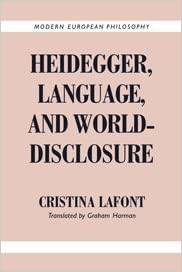
3:16: So why isn’t self-government to be equated with political equality?
CL: The democratic ideal of self-government is about participating in shaping the laws and policies to which citizens are subject so that they can identify with them and endorse them as their own. The opposite of participation in “self-government” is to blindly defer to the decisions of others without having any way of knowing whether they share our political views, our interests, values, or objectives. In most circumstances, if one understands political equality as the right to have an equal say in the political decisions to which one is subject, then political equality and self-government would seem to coincide. By letting all citizens participate equally in shaping political decisions they would be participating in self-government.
However, the development of lottocratic conceptions of democracy allows us to think of scenarios in which political equality and self-government could come apart. One can imagine a political system in which random selection is used to determine the members of lottocratic assemblies in charge of making political decisions for short periods of time, which would then be periodically replaced by new ones so that, over time, all citizens have equal chances to be selected, i.e., to rule and be ruled in turn. A lottocratic system of this variety would exhibit political equality in the sense that, over time, no one would have (or accumulate) more political power than anyone else and no one would be able to dominate others. However, this political system would not enable democratic self-government. To the contrary, in this system citizens would be required to blindly defer to the political decisions of the few members of each assembly over whom they have no democratic control. Given the differences in information and access to deliberation between participants and non-participants in each assembly, the predictable result would be a permanent misalignment between the decisions made by the lottocratic assemblies and the opinions and will of the non-participating citizenry. This means that, over time, citizens would be alienated from the laws and policies to which they are subject. They would not be able to identify with them and endorse them as their own, as the democratic ideal of self-government requires.
3:16: What is ‘deep pluralism’ and ‘proceduralism’ and why are they no good for underpinning your ideal of self-government?
CL: Perhaps one way of explaining it is by focusing on why self-government matters. Why does it matter whether we can identify with the political decisions to which we are subject instead of being alienated from them? In the book I provide two important reasons (although there are many others). Democratic self-government matters because we have an interest in shaping the social world that we live in so that we can feel at home in society, we can see our actions, practices, and ways of life affirmed as meaningful and valuable, our ideas reflected in the shared culture, etc. A different but also very important reason we care about being able to endorse the laws and policies to which we are subject is related to our sense of justice. If we are forced to obey unjust laws we will wrong ourselves or others. We have an interest in shaping the laws and policies to which we are subject according to our judgments so that we are not forced to acquiesce with injustice or to act against our own conscience. Importantly, both reasons for caring about democratic self-government have to do with the substance of the laws to which we are subject.
The problem with interpreting democracy in purely procedural terms, as deep pluralists do, is that it fails to address these important substantive concerns. Deep pluralists argue that, since citizens cannot overcome their substantive disagreements, they should just all agree on accepting the outcomes of democratic procedures such as majority rule, whatever these outcomes may be. But this “procedural shortcut” leaves citizens in the minority with no other option but to blindly defer to the decisions of the majority even if, by their own lights, these decisions violate their own fundamental rights or those of others. Accepting it would force citizens to wrong themselves or others, to acquiesce in injustice or to act against their conscience. As I mentioned before, this conception fails to explain how permanent minorities can come to identify with and endorse the decisions to which they are subject as their own, as the democratic ideal of self-government requires. By contrast I argue that constitutional democracies which are committed to the equal protection of everyone’s fundamental rights and freedoms cannot endorse pure majoritarian institutions. They must have institutions in place that enable citizens to legally contest any laws that they cannot reasonably accept by asking either that proper reasons be offered or that they be changed, regardless of whether these citizens are in the minority. It is in virtue of this “communicative power” that all citizens can participate as political equals in the ongoing process of shaping and forming a considered public opinion that supports the political decisions that they can all own and identify with.
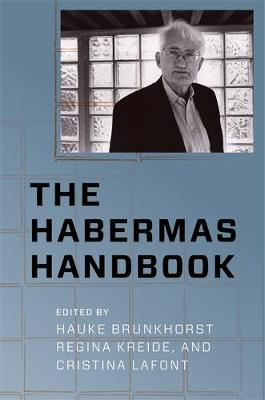
3:16: What makes you think deliberative conceptions are better? Is this component of your thinking coming from Habermas?
CL: Habermas is a key source of inspiration behind contemporary conceptions of deliberative democracy and is certainly a big inspiration behind my own conception. However, as I mentioned before, in his writings Habermas has often overemphasized the epistemic value of deliberation and underplayed its democratic value. And many contemporary deliberative democrats continue to do so as well. An important motivation of my book is to show that purely epistemic conceptions of deliberation are in fact quite damaging to a plausible defense of deliberative democracy.
So, to answer your first question: in my view only participatory conceptions of deliberative democracy are better than the alternatives. The key lies in highlighting the democratic significance of public deliberation. Whereas deliberation in many contexts (scientific, legal, etc.) is driven by the purely epistemic aim of tracking the truth, the specifically democratic aim of public deliberation is to justify the coercive power that citizens exercise over one another by trying to convince each other of the reasonableness of the policies to which they are subject, instead of forcing each other into blind compliance to those policies. Therefore, political deliberation is not a purely epistemic exercise. Its aim is not just to reachconsidered judgments about the best policies according to someone or other . Its fundamental aim is to show those who are bound to obey the policies in question why they too can reasonably endorse them and identify them as their own.
This is the reason we need to engage in public debate with the fellow citizens we disagree with. It is not because they are our epistemic peers. They may very well not be. Perhaps we would reach better political opinions (e.g. on gun control) if we were to deliberate with citizens of other countries. Rather, it is because our fellow citizens are the ones who will be subject to the coercive laws that we favor that we must try to convince them before imposing political decisions on them. The essential contribution of public deliberation to democratic legitimacy is not that it may lead to better outcomes (although, hopefully, it would do so as well). Rather, it is that it enables citizens to endorse the laws and policies to which they are subject of their own accord instead of being coerced into blind obedience (as is the case in authoritarian regimes).
There is no ‘shortcut’ to reaching that goal. Only an inclusive and ongoing process of political opinion- and will-formation in which participants can challenge each other’s views about the reasonableness of the coercive policies they all must comply with, and receive justifications based on reasons that they can find acceptable, makes it possible for citizens to see themselves as equal participants in a democratic project of self-government.
3:16: Why don’t lottocratic conceptions of deliberative democracy work for you?
CL: The problem with lottocratic conceptions of deliberative democracy is that they focus exclusively on the epistemic virtues of deliberation. For them, the purpose of political deliberation is tracking the truth (i.e. identifying the epistemically best decisions), so that we may reach better outcomes. They forget that the other crucial purpose of public deliberation is mutual justification, i.e., justifying coercive laws and policies to those who will be subject to them , so that they too can accept them of their own accord instead of being coerced into blind obedience. Whereas randomly selecting a few citizens that are representative of the citizenry as a whole and having them do the deliberating and deciding could contribute to the epistemic goal of reaching better decisions, it can’t contribute to the democratic goal of justifying political decisions to all those who will be subject to them. Justifying political decisions to a few randomly selected citizens is not a way of fulfilling the democratic obligation of justifying coercive political decisions to all those subject to them. But this is also a problem even if one only cares about “better outcomes”. Lottocrats tend to forget that passing legislation is not the same as reaching better outcomes. It is one thing to pass legislation and quite another to get the citizenry to do their part (even when this cuts against their own opinions and will) so that the legislative goals can be achieved.
Let’s think of the examples that lottocrats focus on such as addressing climate change. Citizens will need to do their part if the policies to tackle climate change are going to succeed. They will need to change their behavior (their consumption patterns, their lifestyle, their food and transportation choices, etc.). They will have to accept the risks, the sacrifices, and the negative consequences of doing so for their specific circumstances, lifestyle, etc. But they won’t do this if they have no understanding of why the proposed measures are necessary and not others, why some trade-offs are proposed and not others, etc. Unless they are convinced that the sacrifices, the risks, and the adverse consequences entailed in these policies are fair, necessary, reasonable, etc. they won’t do their part and the policies in question won’t reach their goals. It is not enough to get a few members of lottocratic assemblies informed about the need to tackle climate change so that they become willing to endorse the best policies to do so with their own behavior. For those who need to accept the policies in question and act accordingly are not just the few randomly selected but the entire citizenry. If they have to do their part to ensure that the policies succeed, then they need to form their opinion and will to act accordingly. Letting a few randomly selected citizens deliberate and make political decisions while bypassing political debate in the public sphere won’t do. It won’t be democratic and it won’t work.
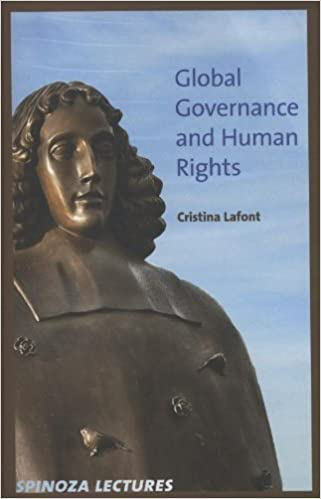
3:16: You’ve already told us why shortcuts are no good for participatory democracy but aren’t there reasons for thinking that the political deliberation of the sort you’re looking for would take too long and demand too much, even if we assume citizens are willing and able?
CL: This is a very important concern that I address in the book. If one exclusively thinks of deliberation as a synchronic process of exchanging arguments in a face-to-face context, then the idea that citizens should participate in political deliberation with their fellow citizens seems extremely overdemanding and implausible. No one could have the time to deliberate about most political decisions with their fellow citizens. As I argue in the book (paraphrasing Oscar Wilde’s objection to socialism) this type of participatory democracy would just take too many evenings! However, thinking of deliberation in this synchronic way is precisely what is misleading. Citizens’ political attitudes, mentalities, values, affects, and objectives are not shaped just in virtue of participating in specific face-to-face conversations about political questions with other citizens. Above all, they are shaped through diachronic processes of opinion and will formation that occur over decades and within which most citizens just passively participate in virtue of growing up in a particular society at a particular time. Even citizens who never engage in political conversations with others and simply vote once every four years are exercising their political power based on the specific way in which political debates shape the public sphere to which they are constantly exposed through the media, talk shows, political ads, etc.
From this perspective, a participatory deliberative democracy neither requires nor expects citizens to actively participate in political deliberation any more or less than they already do. What it requires is that citizens can form their political opinions and will under better deliberative conditions, with access to better information and in a properly inclusive public sphere where all political voices can be heard and are not marginalized. Of course, improving the epistemic and democratic quality of the public sphere against the powers that be is a daunting task. But it is not overdemanding. It is exactly what citizens of democratic societies need to legitimately exercise political power—nothing more, nothing less.
3:16: Inclusion is obviously a key element – so can public reason be inclusive as you say it must be, and where do things like religious-secular distinctions figure in all this?
CL: Yes, in the book I articulate a participatory conception of public reason that aims to show how political deliberation can be an inclusive process that enables all citizens, whether religious or secular, to engage in mutual justification and to get traction upon each other’s views despite of their deep disagreements. In fact, I argue that the key to understanding how constitutional democracies can be inclusive is to leave aside the religious-secular distinction. I follow Rawls in interpreting public reasons, not as “secular” reasons but as “properly political” reasons, that is, reasons based on the democratic ideal of treating citizens as free and equal, and of society as a fair scheme of cooperation, which find expression in the constitutional principles to which citizens are bound in liberal democracies. These democratic values and principles (which are neither secular nor religious) provide a reservoir of generally acceptable reasons from which all citizens can draw to publicly justify the coercive policies they endorse to their fellow citizens. I argue that these reasons have constraining priority over other reasons whether religious or secular.
According to the “mutual accountability proviso” that I defend, citizens who participate in political advocacy can appeal to whatever reasons they wish in support of the policies they favor (whether religious or secular), provided that they are prepared to show – against objections – how these policies are compatible with the democratic commitment to treat all citizens as free and equal, and can therefore be reasonably accepted by everyone. To fulfill this democratic obligation, citizens must be willing to engage in an argument on the compatibility of their favored policies with the equal protection of the fundamental rights and freedoms of all citizens, and they must be willing to accept the outcome of that argument as decisive in settling the question of whether these policies can be legitimately enforced.
Objections to the compatibility of such policies with the equal protection of the fundamental rights and freedoms of all citizens must be (i) properly addressed in public debate, and (i) defeated with compelling arguments before citizens’ support (or vote) for their enforcement can be considered legitimate. In the last chapter of the book, I show that constitutional democracies with judicial review are structured in precisely this way. By accepting that majoritarian political decisions may be legitimately overturned if deemed unconstitutional, citizens are accepting the priority of public reasons over whichever other reasons and considerations (whether religious or secular) may have determined the outcome of the voting process. Citizens’ endorsement of constitutional democracy is tantamount to their endorsement of that priority.
3:16: Isn’t there a role for deferring to experts in your approach – surely if the people can just say no to judges, say, when they make an unpopular decision, then isn’t that the end of rule of law? And what do you say to those who say that the reason we have a democratic deficit is not because citizens aren’t participating enough but that they have far too much participation – that populism is the issue leading to anti-democratic situations - and that citizens need a strong civic society in between them and power, rather than what you’re suggesting which is a direct line between citizens and power?
CL: Yes, of course, I think that it is very important to defer to the opinions and the technical advice of experts in many contexts. Experts play very important roles in our societies. However, it is important to keep in mind that experts are selected for their specialized knowledge and not for their political preferences or personal values. For this reason, they can provide technical advice , but they have no special right to impose their political preferences or personal values on their fellow citizens. Let’s take the example of climate change. We need scientific experts, economists, etc. to inform us of the difficult choices we face in trying to reduce carbon emissions as fast as possible and the differential impact such reductions would have on different sectors of the economy, on different social groups, countries, etc. However, they cannot make these choices for us. The citizenry must make the tough choices of deciding which economic risks are worth taking and at what cost, which priorities must be respected, how it is fair to distribute the burdens, the risks, and the negative consequences of the transition to clean energy among different groups, etc. Experts’ input is necessary to answer these questions, but it is obviously not sufficient. Citizens must take their own risks in light of their own values and preferences . We are responsible for our own political choices, and no one can take this responsibility off our shoulders.
On the other hand, I am not against delegation. Citizens in representative democracies are expected to defer a lot of political decisions to their representatives. But this type of deference is not politically blind, since citizens get to select their representatives based on their political preferences and they can exercise democratic control over them. Judicial decisions are different. But accepting them is also not a case of (politically) blind deference, since judges are constrained to apply laws that have in turn been democratically decided.Now to your question about the risk of populism in a defense of citizen participation and your suggestion that I am in favor of establishing a direct line between citizens and power. Let me clarify that I do not defend direct democracy, nor do I believe that representative democracy is merely a second-best option because direct democracy is unfeasible. Even if it were feasible, a direct democracy would be as susceptible to the danger of oppressing minorities as any other form of democracy. I have no sympathies for direct democracy, and I have a very strong antipathy towards populism. I totally agree that populists who feel entitled to pick and choose exactly who belongs to “the people” (and who does not) are “participating” far too much, so to speak, and that this is one of the biggest threats to democracy at the moment. I am also not in favor of increasing citizen participation in political decisions per se.
I am in favor of increasing the epistemic and the democratic quality of the processes under which citizens exercise their political power. In fact, I am very suspicious of the populist tendencies of lottocrats who propose to dismantle representative institutions and political parties so that randomly selected citizens can take political matters in their own hands and do the job that, in their opinion, politicians are unable or unwilling to do. Nadia Urbinati and I are currently writing a book tentatively entitled “Defending Democracy against Lottocracy”, in which we analyze, among other things, the democratic loss that our societies would incur if they were to endorse lottocrats’ populist conception of representation as ‘embodiment’, their exclusion of political parties and other mediating actors from politics, etc.
3:16: And finally, for those of us at 3:16, can you recommend five books other than your own that will take us further into your philosophical world?
CL: Hmmm… Only five books? That’s very difficult! I have favorite books in many philosophical areas but, just focusing on democratic theory, what would I recommend? Any book from Habermas, really.
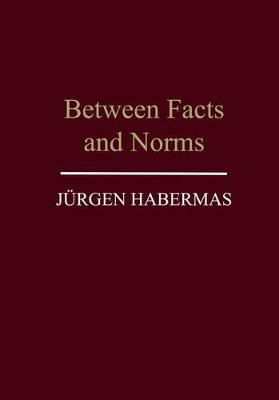
But if I must pick one, I guess it would be Between Facts and Norms (MIT Press, 1998), especially the chapters on deliberative politics.
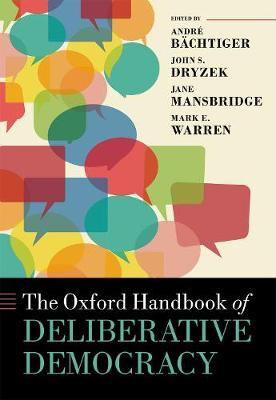
For those unfamiliar with the tradition of deliberative democracy, an excellent resource for understanding the motivations and concerns animating the tradition is The Oxford Handbook of Deliberative Democracy, edited by A. Bachtiger et al. (OUP, 2018).
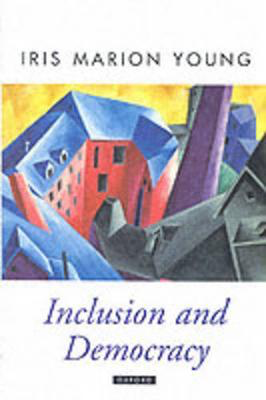
Another excellent book that had a decisive impact on deliberative democracy is Iris M. Young’s Inclusion and Democracy (OUP, 2002).
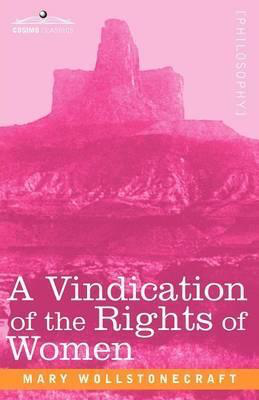
Going beyond deliberative democracy, an absolute favorite that I would recommend is Mary Wollstonecraft’s A Vindication of the Rights of Women (Harper Collins, 2013), a wonderful book to keep reminding ourselves about the constant political struggle for democratic rights.
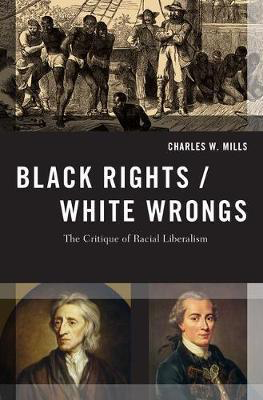
Another favorite is Charles Mills’ “White ignorance”, in Black Rights/White Wrongs: The Critique of Racial Liberalism (OUP, 2017). This is an excellent read for so many reasons but, in the context of democratic theory, it is a perfect antidote to the ideological influence that seeps into debates from the “voter ignorance” literature. If one truly cares about citizens’ ignorance then the type of ignorance Mills analyzes is the kind we should actually be worried about!

ABOUT THE INTERVIEWER
Richard Marshall is biding his time.
Buy his second book here or his first book here to keep him biding!
End Time series: the themes
Huw Price's Flickering Shadows series.
Steven DeLay's Finding meaning series
Josef Mitterer's The Beyond of Philosophy serialised
NEW: Art from 3:16am Exhibition - details here